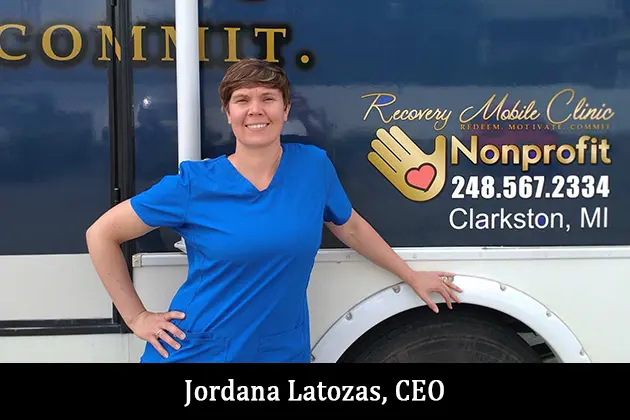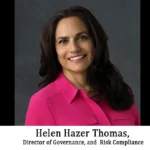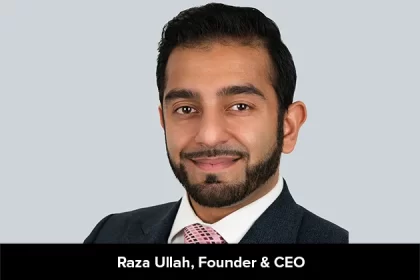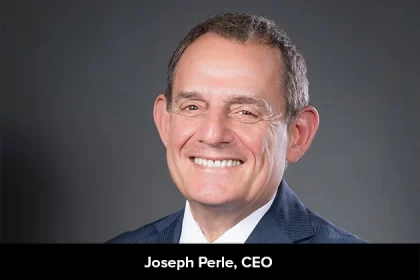Growing women entrepreneurs is essential for achieving gender equality and fostering economic growth. By empowering women to start and lead businesses, we harness a diverse range of perspectives, talents, and innovations that contribute to a more vibrant and inclusive economy.
Additionally, supporting women entrepreneurs can help address gender disparities in employment and income, driving economic empowerment and social progress. Furthermore, women entrepreneurs often prioritize social and environmental sustainability, leading to businesses that not only generate profits but also create positive impacts on communities and the planet.
Jordana Latozas embodies the essence of a strong woman entrepreneur through her unwavering determination, resilience, and visionary leadership. As the founder, she has navigated challenges with grace, leveraging setbacks as opportunities for growth.
Jordana’s dedication to being the best and her bravery in trying new things have pushed her businesses to great success, motivating others to chase their business dreams. She strongly supports diversity and inclusivity, making spaces where women can succeed and do well. Jordana’s story is a symbol of empowerment, inspiring women all over the world to embrace their abilities, overcome obstacles, and leave their mark in the business world.
Jordana Latozas, an acute care nurse practitioner, observed that numerous patients faced difficulties in finding transportation to their appointments while working at a physical clinic. Consequently, in February 2020, she established the Recovery Mobile Clinic in Michigan to provide care directly to them.
Recovery Mobile Clinic was established in February 2020. Right after that, the COVID pandemic hit. However, the company made a pivot. Before that, Recovery Mobile Clinic faced difficulties in securing its first contract due to the stigma surrounding addiction medicine and medication-assisted treatment (MAT).
The organization constantly heard the message, “You are doing good work, but we don’t need it here. Go somewhere else.” During the beginning of COVID, doctor’s offices closed, shelters shut down, and treatment centers stopped accepting clients. It was a disaster, especially in Michigan where it was still cold in March. So, the company conducted research and discovered the requirements to offer rapid COVID testing at shelters, treatment facilities, and community centers.
This allowed people to access shelter, food, healthcare, see family, and go to work. Eventually, the company also started administering COVID vaccines. It secured its first contract with the state of Michigan to bring vaccinations to hard-to-reach areas. Suddenly, Recovery Mobile Clinic became a solution rather than a threat. It learned that if it directly approached addiction services, it faced resistance. Therefore, the company made a pivot. They now focus on primary care, mental health, and STD screening/treatment, while also providing addiction treatment. This change in their model has brought exponential success.
In Jordana’s journey, she had the opportunity to work with amazing mentors in both healthcare and entrepreneurship. These mentors showed exceptional leadership and innovative thinking. Surprisingly, she also encountered some not-so-great leaders, but it was these experiences that made her believe that she too could become a leader. Working with and overcoming challenges alongside them made her realize that being a leader had nothing to do with education, credentials, or authority. True leadership required passion, dedication, and a supportive team that shared her vision. This realization motivated her to take the leap and pursue her goals. If they could do it, even if not perfectly, then she could do even better.
Jordana Latozas believes that the number of women entrepreneurs is increasing. Since the majority of nurse practitioners are women, at 86.9%, this field is driven by women and growing rapidly. Nurse practitioners are considered the largest sector of growth in the healthcare industry.
They are also gaining full practice authority in 27 states, with more to come. It’s an exciting time to be a woman, a nurse practitioner, and in business! The mobile model is becoming more recognized and profitable. The Recovery Mobile Clinic will soon expand its chapter model to increase healthcare accessibility and empower other nurse practitioners to run their own clinics.
Jordana Latozas insists everyone join them in creating a strong community of nurse practitioners who bring healthcare directly to the people! Support patient care by making a donation today at www.RecoveryMobileclinic.com. Your contribution to Recovery Mobile Clinic, a 501c3 nonprofit, directly helps save lives every day!
Jordana is introducing a new specialty in healthcare called “Transitionist”, Recovery Mobile Clinic focuses on helping patients who have fallen through the cracks of transitional medicine models and guiding them towards stability and reestablishment in traditional primary care.
Jordana’s future goal is to transition from her current responsibilities as a clinic NP to collaborating with prominent national organizations like the Salvation Army, Catholic Charities, United Way, Veterans Association, Department of Corrections, and others. She aims to facilitate the establishment of clinics and territories for NPs, regardless of their location. By expanding her influence on a national scale, she hopes to establish partnerships for all chapters to connect with and initiate efforts to bridge the gaps in healthcare accessibility.
Jordana Latozas, the CEO, is a visionary leader whose resilience and determination inspire greatness in others
Jordana Latozas pursued becoming an Advanced Practice Practitioner to enhance the lives of her patients and advance the healthcare sector. By constantly developing her abilities and knowledge, she gains confidence and a feeling of achievement that directly benefits patient care. Each day presents a fresh chance to acquire new knowledge, and every new skill contributes to the betterment of our surroundings.
Our mission is to provide treatment options for drug and alcohol addiction that have been proven effective in decreasing relapse rates while increasing treatment availability to a population that is largely under-served.









